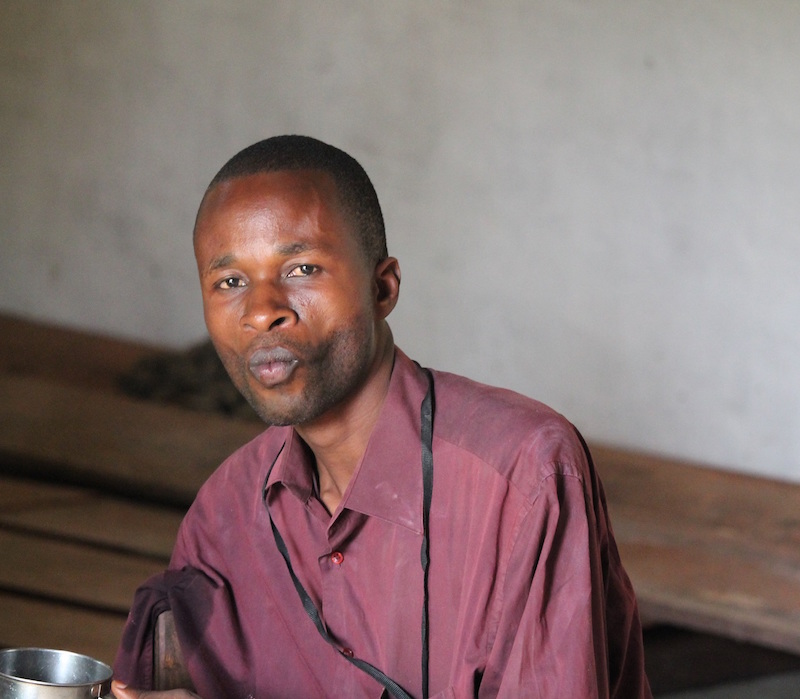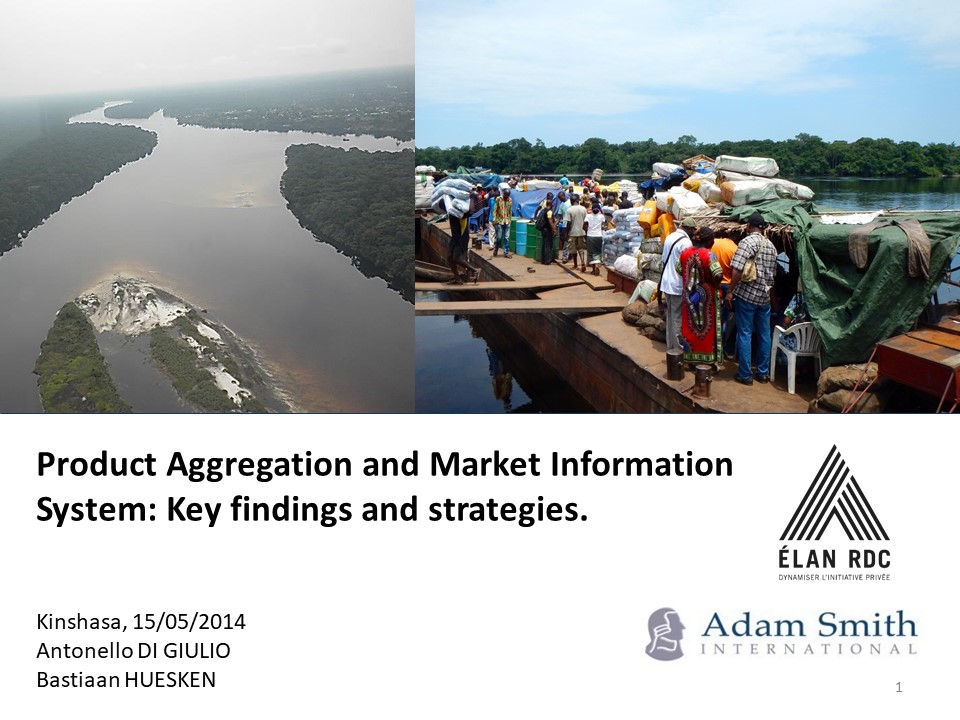DRC has one of the least developed road networks in the world. Approximately 85% of the agricultural produce sold in wholesale and retail markets in Kinshasa arrives by boat. With a sparse road network, the Congo River is a crucial economic artery, connecting the country’s vast interior with Kinshasa and providing smallholder farmers access to urban markets. As a result of population growth and urbanisation, demand for river transport services is growing exponentially.
ELAN RDC is improving the efficiency of river transport by addressing systemic constraints. By improving coordination of traders along the river network shipping time and cost are reduced, leading to increased trade volumes and ship rotations.
Our successful pilot in Basankusu demonstrated that river transporters can achieve a 200% increase in produce transported to Kinshasa. We have facilitated new forms of collaboration between river transporters. This has allowed transporters to build their capacity, to access investment and working capital financing, to grow their operations, and to advocate more effectively through public-private dialogue for the eradication of business-constraining illegal taxes. We also provide technical assistance on the development of a market information system and warehouses to enable traders in Equateur province to communicate transportation needs to river transport operators.
ELAN RDC also works to improve passenger transport systems in urban areas, and to develop better logistics information systems for better aggregation and shipment of agricultural products in rural areas.
Market Studies
CASE STUDY: ACOBA Traders’ Association
“With the new system we were guaranteed a boat so we could plan ahead and purchase more stock. It has renewed trust between traders and we now cooperate in our work and even entrust our cargo to others on the boat when we cannot travel with it ourselves. This was not done before.”
The Congo River and its tributaries act as major supply routes to the capital, Kinshasa, and serve as the principal means of income for millions of poor households throughout the DRC. After conducting studies in key trading areas, ÉLAN RDC discovered that potential volumes are not being transported due to issues including poor communication between traders and transporters and lack of storage facilities for agricultural produce near the river.
This was very evident for Basankusu, a town on the Lulonga River, a tributary of the Congo River. Despite being a vibrant production centre consisting of 30,000 households, it was serviced by only eight boats in 2013.
To increase traffic to and from this area, ÉLAN RDC developed an improved logistics systems that involved supporting local traders to develop storage capacity and linkages with smallholder farmers and river transporters. Two warehouses were constructed in Basanskusu to resolve the storage issues and a market information system was devised to provide timely information about transport demands for Basankusu traders to river transporters.
One of these warehouses is owned by the trader’s association ACOBA. Médard Munzemba, a member of this association, has been trading agricultural produce for many years. He explains, “In 2013 only eight boats came to visit us and I was only able to transport a small proportion of my stock. As I didn’t know when the next boat would come I didn’t buy more produce, which led the farmers to grow less produce the next season. We all lose out when no boats come.”
ÉLAN RDC’s new information and contracting system allowed Médard and other traders operating in the area to come together to guarantee the transporters their trading volume. Thanks to their coordination they were able to purchase a larger quantity of produce, which they used to negotiate a $2 discount in transport cost per bag of maize. This saved them $7,500, allowing the group to purchase additional agricultural products from 161 small producers in the area. Médard himself gained an extra $1,510.

“With the new system we were guaranteed a boat so we could plan ahead and purchase more stock. It has renewed trust between traders and we now cooperate in our work and even entrust our cargo to others on the boat when we cannot travel with it ourselves. This was not done before.” Sid Médard.
So far an impressive 450 tons of agricultural produce has passed through the system.
The market access approach that ÉLAN RDC has applied goes further than any project currently running in Basankusu in connecting the smallholders and traders to consumer markets. Due to the low cost and low risk involved with developing this simple aggregation and logistics system, it can easily be replicated in other areas. ÉLAN RDC is currently disseminating this system throughout Equateur province to encourage transporters and traders to trial this new initiative and experience the positive results.

